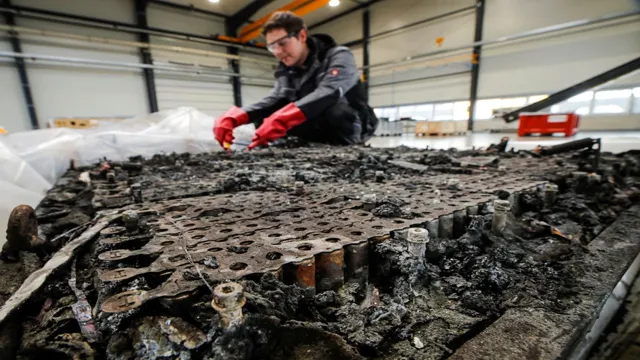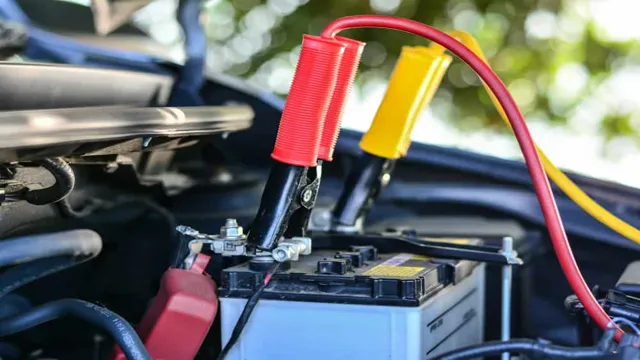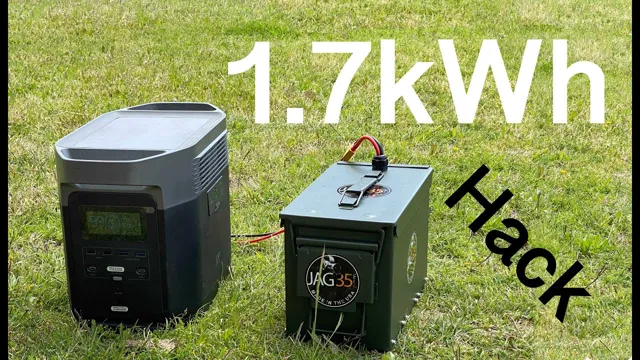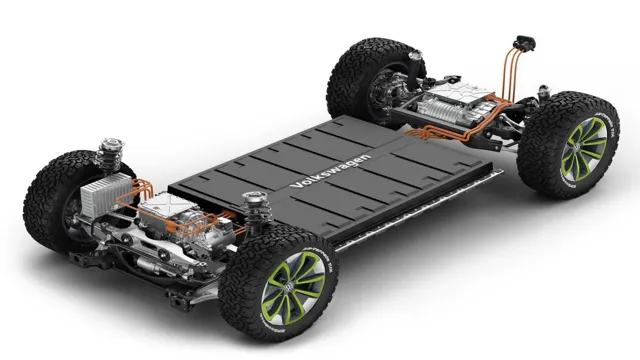Unveiling the Challenges of Electric Car Battery Disposal and Sustainable Solutions
Electric cars are becoming increasingly popular due to their environmental benefits and potential cost savings when compared to traditional gasoline-powered vehicles. However, as the popularity of electric cars grows, so does the concern surrounding the disposal of their batteries. The electric car battery disposal problem has become a pressing issue, as the proper disposal of these batteries is critical to minimizing their environmental impact.
While electric car batteries can be recycled, the process is complex and expensive, and there are limited facilities capable of handling this kind of waste. In this blog, we’ll explore the challenges surrounding electric car battery disposal and what steps are being taken to address this issue.
Causes of Battery Waste
The electric car battery disposal problem is a growing concern in the automotive industry. The rise and demand for electric vehicles have led to an increase in the production of electric car batteries. However, the disposal of these batteries is becoming a major issue.
When the batteries are no longer functional, they are considered hazardous waste and must be properly disposed of to prevent environmental pollution. Unfortunately, there is currently no standardized method for disposing of electric car batteries. This lack of a proper disposal method can lead to environmental damage, contamination of soil, and water pollution.
It is imperative that the automotive industry works towards finding a sustainable solution for the safe disposal of electric car batteries to reduce the negative impact on our environment.
Short life cycle
Battery waste is a growing concern worldwide due to the high demand for electronic devices and their short lifespan. The short life cycle of batteries contributes greatly to the amount of waste generated. The rapid advancement of technology and the need for more energy-dense batteries can also lead to quicker obsolescence of existing models.
Additionally, the low cost of manufacturing batteries leads to a widespread use of disposable batteries, resulting in an enormous amount of waste in landfills. The accumulative depletion of natural resources required for the production of batteries, such as lithium and cobalt, further exacerbates the problem. It is essential to adopt sustainable practices to reduce the negative impact of battery waste on our environment and improve the life cycle of batteries.

Lack of recycling infrastructure
The lack of proper recycling infrastructure is one of the major causes of battery waste. Due to inadequate facilities, most people tend to dispose of their old and used batteries in the trash, which ends up in landfills. These landfills can have adverse effects on the environment, leading to soil and water pollution, which can be harmful to people and wildlife.
Additionally, the limited recycling facilities for old batteries make it challenging to recover valuable metals such as nickel and cobalt, which are commonly used in battery production. As more people continue to use batteries for their daily activities, the demand for disposal and recycling infrastructure will increase significantly. It’s crucial to invest in proper recycling channels and encourage recycling habits to manage battery waste effectively.
By doing that, we can reduce the environmental impact of battery waste and protect our health and the planet.
Environmental Impacts
One of the biggest concerns when it comes to electric cars is what to do with the batteries once they’ve reached the end of their useful life. The problem with electric car battery disposal is that many of the materials used in the batteries are toxic and can be harmful to the environment if not disposed of properly. For example, lithium-ion batteries, which are used in most electric cars, contain heavy metals like cobalt, nickel, and lithium.
If these metals end up in landfills, they can contaminate soil and water sources. To address this issue, there are a few different approaches being taken. Some companies are working on developing recycling processes to recover valuable metals from old batteries.
Others are exploring second-life applications, such as using old batteries to store electricity from solar panels or wind turbines. Ultimately, it will be important to find a sustainable solution to the electric car battery disposal problem if we want to continue using electric cars as a cleaner alternative to traditional gasoline vehicles.
Toxic waste to land and water
Toxic waste is a major ecological issue that poses significant risks to both land and water. Such waste is typically produced from industrial sources, including factories and power plants. If not managed properly, toxic waste can contaminate nearby water sources, seep into the soil, and cause significant harm to local ecosystems.
The damage caused by toxic waste is long-lasting and difficult to reverse, making it imperative that we take action to address this issue. From hazardous chemicals to heavy metals, toxic waste can have a profound impact on the natural world, affecting everything from the soil we grow our crops in to the fish we eat. To prevent further damage from toxic waste, we need to prioritize sustainable practices in both our personal lives and across industries.
Greenhouse gas emissions
Greenhouse gas emissions are a major environmental concern contributing to climate change, with significant ecological and social impacts. Global greenhouses have the potential to cause natural disasters such as wildfires, hurricanes, and drought, wreaking havoc on communities and ecosystems worldwide. Higher temperatures and water levels can also result in food insecurity, displacement of people and animals, and health problems.
By reducing greenhouse gas emissions, we can curb these negative effects on the environment. We can minimize our carbon footprint by buying energy-efficient appliances, using public transportation, eating locally sourced food, and supporting renewable energy systems. Every small change can make a difference in shaping the future of the planet and safeguarding its ecosystems.
Resource depletion
Resource depletion has been a prominent issue in recent years, and the environmental impacts of this issue are severe. As we continue to consume and use resources at unsustainable rates, we risk depleting these resources to the point of no return. The overuse of natural resources like water, fossil fuels, and forests not only harms the environment but also undermines the ability of future generations to meet their needs.
For example, the depletion of forests leads to soil erosion and loss of biodiversity, affecting the entire ecosystem of the area. Additionally, the reliance on fossil fuels contributes to global warming and air pollution, further exacerbating the environmental impacts. As a society, we must take measures to reduce our resource consumption and ensure that we are using resources in a sustainable manner to avoid future resource depletion and associated environmental impacts.
Current Solutions and Innovations
The growing number of electric cars on the road nowadays has led to an electric car battery disposal problem that the industry is scrambling to solve. The current solutions and innovations to tackle this issue include recycling and reusing the batteries. One of the most promising recycling methods is called hydrometallurgy, a process where the batteries are broken down into their constituent parts and then the metals are separated and extracted.
This method is much more environmentally friendly than traditional methods, as it requires less energy and produces less pollution. Another way to address the electric car battery disposal issue is through reusing the batteries. Many manufacturers are experimenting with repurposing old batteries for home energy storage systems or to power other types of vehicles like buses and trucks.
These solutions may not solve the problem entirely, but they are important steps towards greater sustainability in the electric car industry.
Battery recycling initiatives
Battery recycling initiatives have become increasingly popular in recent years as more and more people become aware of the environmental damage caused by discarded batteries. Companies are developing innovative ways to recycle batteries, including recovering rare metals such as lithium, cobalt, and nickel. These metals are then reused in new battery production or sold to manufacturers to make other products.
One such initiative is the use of hydrometallurgical processes, which use water-based solutions to dissolve and extract the metals. Another innovative solution is the use of bacteria to extract the metals from spent batteries. These bacteria are naturally occurring and can break down the metals into their elemental form without the use of toxic chemicals.
While there is still much to be done to increase battery recycling rates and reduce the impact of discarded batteries on the environment, these initiatives are promising and represent a step in the right direction.
Second-life applications
When it comes to second-life applications, there are a variety of current solutions and innovative ideas being implemented. One such solution is virtual real estate, where users can purchase and design their own virtual properties. This allows for a new form of socialization and creativity within the virtual world.
Additionally, there are second-life applications being developed for education and training purposes. This includes simulated environments for medical professionals to practice procedures and for military personnel to train for combat scenarios. Virtual reality technology also allows for the creation of immersive experiences, such as virtual tourism or entertainment.
As more people turn to virtual worlds for socialization and entertainment, there is a growing demand for innovative second-life applications.
Future of Battery Disposal
The electric car battery disposal problem is a growing concern for environmentalists as the market for electric vehicles (EVs) continues to expand. These batteries contain materials, such as lithium, cobalt, and nickel, that can be harmful to the environment if not properly disposed of. Currently, most EV batteries are recycled or reused, but their lifespan is limited, and they eventually require disposal.
The future of battery disposal may involve more sustainable options such as advanced recycling and repurposing of the metals within the batteries. Additionally, manufacturers are exploring new materials for batteries that are more environmentally friendly and can be easily recycled. With the increasing demand for EVs, it is important for the industry to address the battery disposal problem and find innovative solutions that prioritize sustainability.
Emerging technologies
The future of battery disposal is becoming a hot topic as the world shifts towards renewable energy and electric vehicles. With the increased use of batteries, the disposal of these items has become a significant concern. Traditional methods of battery disposal can lead to environmental pollution and health hazards.
However, emerging technologies offer a promising future for battery disposal. Researchers are exploring new ways to recycle and repurpose batteries, leading to a zero-waste approach to battery disposal. For instance, recycling plants are now using hydrometallurgical processes to extract lithium, cobalt, nickel, and other metals from used batteries.
These metals are then used to create new batteries, reducing the need for raw materials. Another promising technology is the creation of new batteries that can be easily disassembled, and each component can be reused or recycled. In conclusion, emerging technologies are bringing unprecedented advancements in battery disposal that will ensure zero waste and a greener future for generations to come.
Role of regulations and policies
The future of battery disposal largely depends on regulations and policies put in place. With the increasing use of batteries in today’s technology-driven world, the environmental impact of disposing of batteries has become a growing concern. In response, many countries have implemented regulations aimed at ensuring proper disposal and recycling of batteries.
These regulations require certain standards and procedures for storing, handling, and processing batteries. As battery technology advances, policies will have to adapt accordingly to address the specific disposal needs of new types of batteries. It’s crucial for policymakers to take responsibility for managing battery disposal, ensuring that the environment and human health are protected while encouraging the development of eco-friendly alternatives.
By doing so, we can create a more sustainable future that balances the benefits of technology with environmental responsibility.
Conclusion
In conclusion, the electric car battery disposal problem is not just a matter of “out of sight, out of mind.” It is a pressing environmental concern that demands our attention and creative solutions. We must not overlook the impact of our transportation choices on our planet’s health and instead strive to find innovative methods for recycling and reusing these batteries.
Let’s not “charge” ahead blindly into a future of electric cars without considering the consequences and working together to ensure a sustainable solution for our rechargeable companions.
FAQs
What is the problem with electric car battery disposal?
The problem with electric car battery disposal is that they contain toxic heavy metals and chemicals which are harmful to the environment.
Can electric car batteries be recycled?
Yes, electric car batteries can be recycled. Recycling helps in reducing the environmental impact of battery disposal.
What are the consequences of improper disposal of electric car batteries?
Improper disposal of electric car batteries can lead to toxic chemicals leeching into groundwater and soil, posing a threat to human health and the environment.
How do manufacturers ensure the proper disposal of electric car batteries?
Manufacturers have a responsibility to ensure the proper disposal of electric car batteries. They often partner with third-party recycling companies to safely dispose of batteries at the end of their lifespan.





